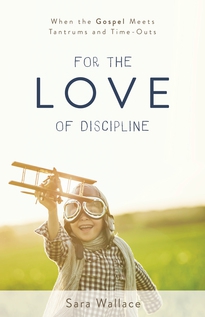Amazing Grace recounts the story of John Newton and one of his most beloved hymns in an engaging way for children ages three to six. It has a large font with just the right amount of text per page to match the (generally short) attention spans of this age group. Additionally, the authors seek to retain the listener's attention by asking simple questions along the way. Although simple enough for this age group, these questions are not simplistic and have the potential to lead to helpful discussions about family, discipleship, companions, rebellion, fear, prayer, God's forgiveness, and grace. Additionally, these questions may serve to draw listener's into Newton's story and make him more relate-able. Best of all, each of these components leads the child on a journey to see themselves, like Newton, as a sinner in need of God's forgiveness freely offered through Jesus Christ. Amazing Grace paves the way afresh for the Good News of Christ's life, death, and resurrection.
One note: Like many Christian resources, this book seems to summarize Gospel. It's closing pages say:
"Do you know what 'grace' means? It means God gives us what we don't deserve. Because we sin, we deserve God's punishment. But when we believe in Jesus and ask for forgiveness, God forgives and saves us..." (39).
While it is essential to believe in Jesus, the question may remain, "What are we to believe about Jesus?" Unfortunately, due to brevity, this didn't seem as clear as it could be in this book. I would encourage everyone reading this book to go one step further with their kids and read First Corinthians 15:3-4:
"For I delivered to you as of first importance what I also received, that Christ died for our sins according to the Scriptures, and that He was buried, and that He was raised on the third day according to the Scriptures..."
This will help present the Gospel more clearly to one's listener(s). The book closes with three suggested questions for discussion, and a fourth would complement these well: "Why can God give sinners grace?" (The First Corinthians passage above answers this question well: Because Christ died for the sins of all who would believe, and God accepted His sacrifice.)
As soon as we finished Amazing Grace, my kids asked me if we had the next book in the series. We thoroughly enjoyed this title, and I am happy to commend this title to you, my readers.
If you're in Canada, you can purchase this book through Reformed Book Services.
*Many thanks to Biblical Spirituality Press and Reformation Heritage Books for sending me a complimentary copy of this book!! This is my honest opinion.




/A-cover/without%20spine/9780802418555.jpg)




